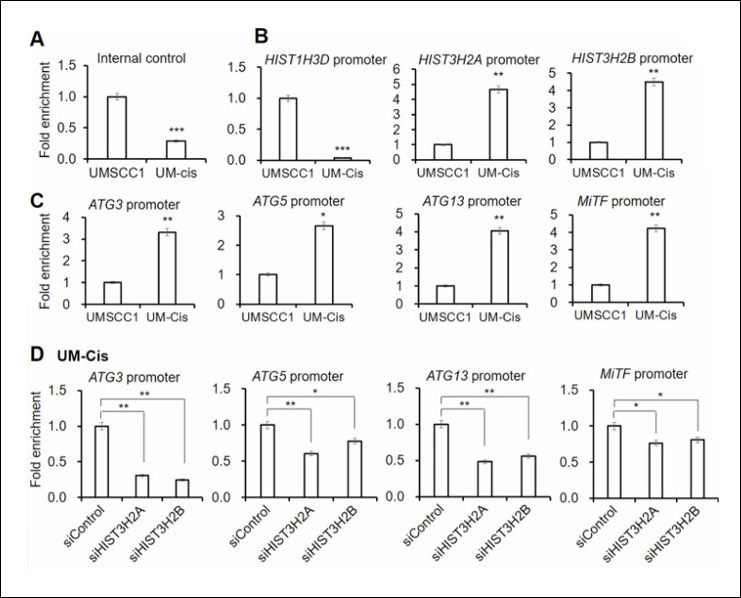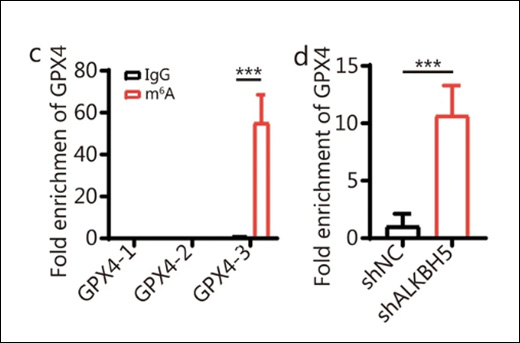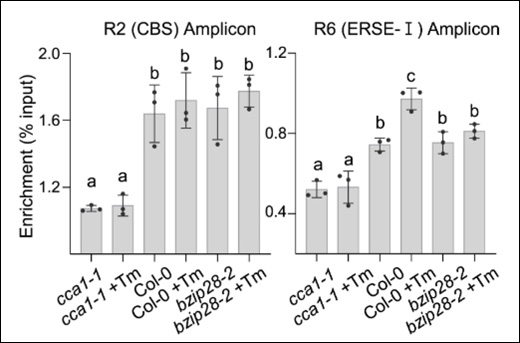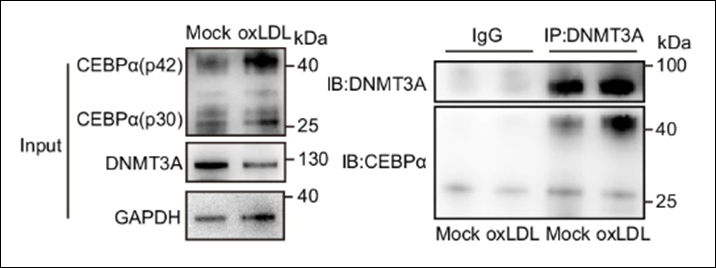Wang J et. al. (November 2023). HES1 promotes aerobic glycolysis and cancer progression of colorectal cancer via IGF2BP2-mediated GLUT1 m6A modification Cell Death Discov. 9(1):411.
In the study, researchers investigate the regulatory role of HES1 in colorectal cancer (CRC) cell proliferation and metastasis through aerobic glycolysis. The findings reveal that elevated HES1 expression in CRC tissues is associated with poor patient survival, and HES1 promotes CRC progression by directly binding the promoter of IGF2BP2, which enhances IGF2BP2 expression, leading to increased stability of m6A-modified GLUT1 mRNA and subsequent promotion of aerobic glycolysis.
Products Used: EpiQuik CUT&RUN m6A RNA Enrichment (MeRIP) Kit
Guo Y et. al. (September 2023). High glucose environment induces NEDD4 deficiency that impairs angiogenesis and diabetic wound healing J Dermatol Sci.
The study explores the role of the E3 ligase NEDD4 in angiogenesis and diabetic wound healing. The findings reveal that NEDD4 promotes endothelial cell proliferation, migration, and tube formation by ubiquitinating and degrading TSP1, leading to increased VEGF expression, and its deficiency, observed in diabetic patients due to hypermethylation of the NEDD4 promoter under high glucose conditions, impairs angiogenesis and wound healing in a diabetic mouse model.
Products Used: EpiQuik Chromatin Immunoprecipitation (ChIP) Kit
Zarcone G et. al. (October 2023). Impact of Electronic Cigarettes, Heated Tobacco Products and Conventional Cigarettes on the Generation of Oxidative Stress and Genetic and Epigenetic Lesions in Human Bronchial Epithelial BEAS-2B Cells Toxics. 11(10)
The article investigates the comparative effects of electronic cigarettes (e-cig), heated tobacco products (HTP), and conventional cigarettes on oxidative stress, genetic, and epigenetic damage in human bronchial epithelial BEAS-2B cells. The findings indicate that HTP, unlike e-cig, exhibit a biological response similar to conventional cigarettes, inducing cytotoxicity, Nrf2-dependent oxidative stress, and genetic lesions in pulmonary cells, emphasizing the importance of understanding the potential health risks associated with heated tobacco products.
Products Used: EpiQuik Total Histone Extraction Kit, EpiQuik Global Tri-Methyl Histone H3K4 Quantification Kit (Colorimetric), EpiQuik Global Tri-Methyl Histone H3K9 Quantification Kit (Colorimetric), EpiQuik Global Tri-Methyl Histone H3K27 Quantification Kit (Colorimetric)
Wang M et. al. (November 2023). Novel ACTL7A variants in males lead to fertilization failure and male infertility Andrology.
This study aims to investigate genetic causes of male-related fertilization failure and explore potential underlying mechanisms. Two males with ACTL7A mutations were identified, and the study expands the mutational and phenotypic spectrum of the ACTL7A gene, shedding light on the pathogenesis and therapeutic strategies for fertilization defects induced by ACTL7A pathogenic variants.
Products Used: PLCZ1 Polyclonal Antibody
Chen C et. al. (November 2023). ALKBH5-mediated CHAC1 depletion promotes malignant progression and decreases cisplatin-induced oxidative stress in gastric cancer Cancer Cell Int. 23(1):293.
This study examines the role of ALKBH5, an m6A demethyltransferase, in gastric cancer (GC). The findings reveal that ALKBH5, highly expressed in GC, affects cell proliferation, metastasis, and survival, with downstream effects on the CHAC1-ROS axis, shedding light on the significance of m6A methylation in GC progression and chemotherapy response.
Products Used: EpiQuik m6A RNA Methylation Quantification Kit (Colorimetric)
Tan L et. al. (November 2023). WTAP-Mediated N6-Methyladenosine of RNAs Facilitate the Pathophysiology of Atopic Dermatitis J Invest Dermatol.
The article investigates the role of N6-methyladenosine (m6A) modification in atopic dermatitis (AD), focusing on the m6A RNA methyltransferase Wilms tumor 1-associated protein (WTAP) and its downstream targets. The findings reveal that WTAP-mediated m6A modification promotes the expression of specific genes (S100A9 and SERPINB3) in keratinocytes, contributing to abnormal proliferation and dysdifferentiation, providing insights into the pathophysiological mechanisms underlying AD.
Products Used: EpiQuik m6A RNA Methylation Quantification Kit (Colorimetric)
Zheng JQ et. al. (December 2023). N6-methyladenosine of TRIM27 enhances the stem cell-type phenotype of cisplatin-resistant colorectal cancer cells Biochem Biophys Rep. 36:101572.
In this study, researchers investigate the role of TRIM27 in colorectal cancer (CRC) and its potential involvement in promoting cancer stem cell (CSC)-type phenotype in cisplatin-resistant CRC cells. They find that TRIM27, through m6A modification, enhances CSC-type properties in cisplatin-resistant CRC, suggesting that targeting TRIM27 and YTHDF1 may be a potential therapeutic strategy to combat CRC relapse.
Products Used: EpiQuik m6A RNA Methylation Quantification Kit (Colorimetric)
Zhang L et. al. (October 2023). HDAC3 aberration-incurred GPX4 suppression drives renal ferroptosis and AKI-CKD progression Redox Biol. 68:102939.
The article investigates the role of HDAC3-induced ferroptosis in the progression from acute kidney injury (AKI) to chronic kidney disease (CKD). Findings demonstrate that renal tubular epithelial ferroptosis, triggered by HDAC3 aberration and GPX4 suppression, is a critical factor in AKI-CKD transition, suggesting that preserving GPX4 through HDAC3 inhibition could be an effective strategy to mitigate renal ferroptosis and slow AKI-CKD progression.
Products Used: Epigenase HDAC Activity/Inhibition Direct Assay Kit (Colorimetric)
Zhang S et. al. (October 2023). Downregulated M6A modification and expression of circRNA_103239 promoted the progression of glioma by regulating the miR-182-5p/MTSS1 signalling pathway J Cancer. 14(18):3508-3520.
This study explores the regulatory mechanisms underlying the progression of glioma, focusing on the role of circRNA_103239 and its interaction with miR-182-5p and MTSS1. The findings reveal that METTL14-mediated m6A modification influences circRNA_103239 expression, impacting the EMT process and contributing to glioma advancement.
Products Used: N6-methyladenosine (m6A) Polyclonal Antibody




 Cart (0)
Cart (0)













